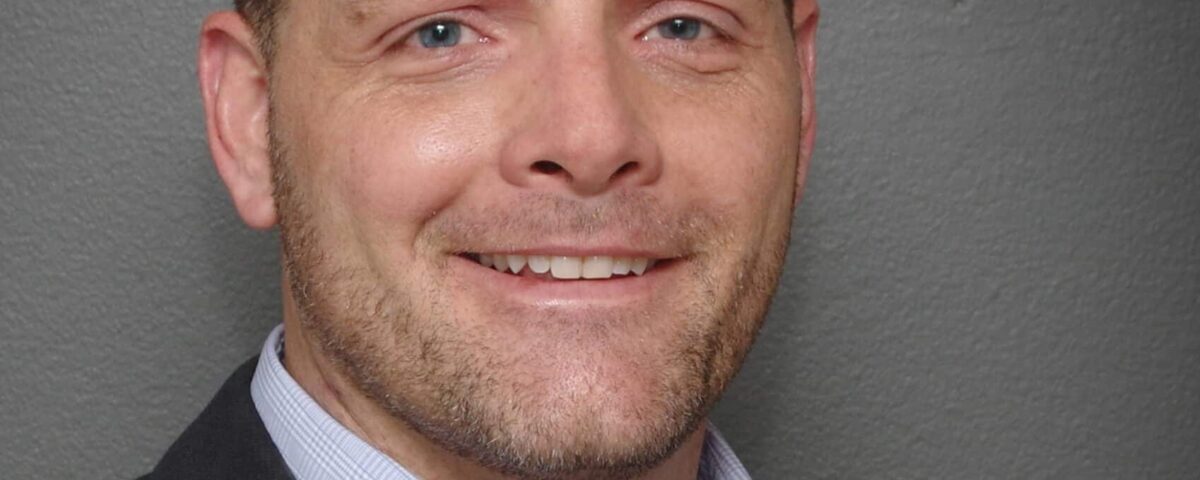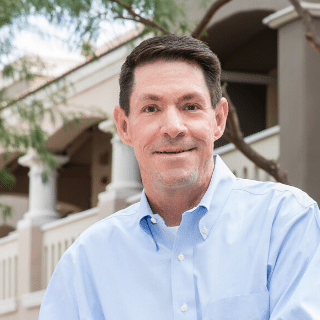HBR: How middle-market companies can avoid a liquidity crisis
December 20, 2023
A restaurant-tech company powers up growth
January 31, 2024By Verne Harnish
Joel Bell is founder of White Hat Industrial, which helps commercial clients restore and protect their roofs with a seamless seal that protects their facility from the elements. In five years, he and his 59-person team 10xed the revenue of their company, which is profitable. While growing rapidly, the company, headquartered in Dayton, Ohio and running additional offices in six cities, has embraced sustainability, saving millions of pounds of roofing from landfills. And, as an outgrowth of Bell’s work in a prison ministry and other teammates’ mission backgrounds, it was formed with a vision of restoration, not just for roofs but for the lives of its workforce, where some have come from challenging circumstances, and for their families around the world.
“When we built White Hat Industrial, it was to have a bigger impact, and I drew a chart over five years, looking at what I want the business to do and the impact to be,” says Bell. “It took off from there.”
A critical part of White Hat Industrial’s growth was working with Scaling Up certified coach Craig Overmyer. White Hat Industrial started out in 2015 as an ancillary business to another business in the construction industry Bell founded and ran since 1996. White Hat Industrial was funded by Threefold private equity, where co-founders Mark Riggle and Charlie Meyer provide portfolio company with access to a support team including a CFO, an HR pro, a chief training officer and executive coach, in this case Overmyer. Threefold deploys the Scaling Up platform among all five of its portfolio companies, which Overmyer coaches.
Bell began working with Overmyer at a point when the leadership team was looking to differentiate White Hat Industrial from his other company. “We recognized that that the business really needed to have its own identity and needed to have its own brand,” says Bell. Since then, White Hat Industrial has surpassed the other business in size and has continued scaling up. Here’s how the team achieved 10x revenue growth, with Overmyer’s guidance, by working on the 4 Decisions every company must get right: People, Strategy, Execution and Cash.
Creating a culture of opportunity
Given the nationwide talent shortage, one secret to White Hat Industrial’s success has been finding the right people to fill the right seats on the bus–and retaining them. Bell and his leadership team have prioritized hiring people of strong character and expertise who are interested in opportunities to continue deepening that knowledge so they can earn more over time. They’ve built a relatively flat organization where team members are assigned to solve clients’ problems based on expertise, instead of basing everything on job titles. “When you’re working with clients, they really just want experts who can solve their problems—they’re not impressed by titles,” says Bell.
Bell and his team have worked hard to create a climate where everyone feels respected at work. That has meant White Hat’s leadership team does not have to chase talent—future talent comes to them.
They give back and solidify their relationships with these critical workers by sending crews to build houses in the communities where many grew up in places such as Costa Rica.
“We’ve invested in those relationships for a decade or more,” says Bell. “We have no turnover whatsoever. The way we treat them goes a long, long way, and it’s created a lot of opportunity for them.”
As an outgrowth of Bell’s work with a prison ministry, a small portion of the workforce early on was made up of formerly incarcerated people. Inspired by Bell’s work with the prison ministry, the company has embraced a Purpose statement to “restore lives, roofs and the world.”
To create a climate where everyone contributes to the company’s growth and success. Overmyer has worked White Hat Industrial’s team to model what he calls the Enterprise Leader Mindset, with the goal of showing everyone at the company how to look at the impact of their daily decisions on the whole enterprise, not just their own part of it. “That’s a huge shift,” Overmyer says. “It’s a small team, but the profit per teammate is incredible.”
Embracing quarterly planning
One key part of the company’s strategy is to hire fewer people and pay them more. That has meant creating a flat organization where people solve problems based on expertise, instead of riding on job titles. Another part of its strategy is to seek growing companies as clients. “We want to target and grow with companies that are designed to grow themselves,” says Bell.
Bell has embraced quarterly planning to keep the company focused on its major goals. As part of a Quarterly Theme during Covid, the company motivated team members to hit critical benchmarks by funding a $1,000 donation to someone of their choosing affected by Covid, providing close to $10,000 in donations. “It was very impactful,” Bell recalls.
Doing the right things right
Execution is critical in a business such as White Hat Industrial, where doing work correctly has an impact on customers’ safety. Bell and his team place continuing emphasis on fine-tuning their processes, everywhere from sales to production. Experimenting until it has found the best ways to do every aspect of its work, the company has put standard operating procedures in place to ensure it delivers quality and consistency to clients, with an emphasis on simplicity. “We don’t make a lot of unnecessary rules and systems that bog people down,” Bell says.
Raising awareness of cash
When it comes to Cash, Bell has prioritized consciousness of the company’s finances among his leadership team, doing a weekly review of the company’s critical numbers to facilitate smart decision-making. “As you’re building a business, you are investing more and more, but you can’t do it all well—so it’s a balance of only working on things you really can and need to impact most right now,” he says.
Through their work with Overmyer, the leadership team keeps an eye not just on profitability but on building the value of the business. “You’re doing things with the forethought of ‘Will what I’m building now work in 36 months?’” Bell says. “That’s a mindset shift.” It’s one that he intends to embrace as he continues to scale White Hat Industrial to new heights.


